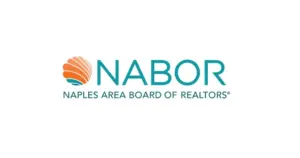A high-performing website has become a cornerstone of success in the modern real estate industry. For many buyers and sellers, your site is their first interaction with your brand. If it loads slowly, feels outdated, or lacks intuitive navigation, you risk losing valuable leads before a single conversation begins. That makes choosing the right platform to manage your listings, capture leads, and publish content a critical business decision.
Among the leading options, WordPress and Wix stand out for their strong feature sets—but they cater to different needs. From customization and scalability to ease of use and long-term flexibility, this guide compares both platforms side by side to help real estate professionals find the best solution for their goals in 2025.
How Each Platform Gets You Started
Let’s take a look at what happens when you first sign up for Wix or WordPress.
With Wix, it’s super easy—kind of like getting a fully built house with furniture already in place. You just sign up, answer a few questions, and within minutes, your site is up and running. It comes with essential features like a security lock (SSL), backups, and everything stored in one place.
WordPress is more like building a custom home. First, you get a host, then install the WordPress, and finally decorate it the way you want using themes and tools. It takes more time and effort at first, but you gain a lot more control over how your site looks and functions in the future.
| Launching Your Site | Wix | WordPress |
|---|---|---|
| Account setup | Just sign up and choose a plan—no extras needed | Buy a domain, pick a host, and install WordPress manually |
| Design | Choose from over 900 ready-made designs | Use thousands of themes, and safely change them with child themes |
| First draft live | Often under 1 hour | A few hours, but gives you full ownership and flexibility |
How You Build Your Website
Wix: First, you choose a template—a design with spaces already made for text and pictures. Then, Wix asks you a few easy questions and uses AI to help fill in some of the details. When you’re ready, click “Publish,” and your website will go live. It’s prepared with security, backups, and updates—all turned on for you.

WordPress: You begin by setting up your WordPress site with your web hosting provider. That means creating a login, adding a database (where the information is stored), and selecting your theme. After that, you’ll need to add special tools called plugins to make your site safe, fast, and suitable for real estate. It takes longer, but you have complete control over every part of the process.

If you like to be in charge of every detail, WordPress gives you that power. However, if you want something quick and easy, Wix is faster to get started.
What a Real Estate Website Must Do
Your real estate website isn’t just about looking nice. It needs to help you sell homes and get new clients. Here are five things every good real estate site should do:
- Always-updated homes: Don’t show houses that are already sold. Your site should get new info from your MLS every hour.
- Innovative search tools: Let people filter homes by school district, price, walkability, or features like electric car chargers.
- Quick lead forms: Utilize forms that directly integrate with your CRM, allowing you to follow up with leads promptly.
- Fast phone loading: Most people search on their phones. Your site should load in 2 seconds or less.
- Good security: Utilize SSL and firewalls and adhere to privacy regulations such as GDPR and CCPA to safeguard user information.
Both Wix and WordPress can accomplish all this, but WordPress offers more options, while Wix makes it easier to get started.
Search & IDX Integration
WordPress is well-suited for working with IDX tools, which display home listings directly from your Multiple Listing Service (MLS). You can use plugins such as Realtyna WPL or Easy Property Listings, which allow you to add various details to your listings—like whether a house is located in a flood zone or how far it is from a park. These tools are fast and work well.
Wix also offers IDX tools, such as MLSimport.com, but they don’t provide as many customization options for the look and layout. If you work in several cities or want to create lots of pages for different areas, WordPress gives you more power.
In WordPress, tools for saving searches and getting email updates are built-in. On Wix, you usually have to pay extra for that.
Lead Capture & CRM Workflows
When someone visits your site and fills out a form, that’s called a lead. With WordPress, you can connect to innovative tools like Salesforce, HubSpot, or Follow Up Boss. You can even create forms that display additional questions only when needed—such as asking someone’s budget if they indicate they’re already pre-approved.
Wix has a Wix Inbox, which is excellent for one-person teams. It can also send leads to other tools using Zapier, but this sometimes incurs additional costs and requires extra setup.
Regardless of which one you choose, ensure that you answer leads within five minutes. Fast replies make it much more likely you’ll get a new client.
Design & Branding
The appearance of your website tells people a lot about your business. Wix makes it easy to get a clean, professional design with drag-and-drop tools. Everything snaps into place, and you don’t need to be a designer to make it look good.
However, if you want to add special features like a 3D home tour or a custom mortgage calculator, Wix may not provide sufficient space for these additions. You’d need to use iframes, which aren’t as flexible.
WordPress lets you build anything you can imagine. Tools like ACF help you create pages that update themselves, such as agent profiles with real-time statistics or maps that display the average time homes stay on the market in each ZIP code.
Mobile Experience
Most people view real estate websites on their phones, so a well-designed mobile version is essential. Wix automatically makes a mobile layout when you publish your site. You can even customize what appears only on phones.
With WordPress, the quality of your mobile site depends mainly on the theme you choose. Some themes—such as Hello Elementor or GeneratePress—are specifically designed to load extremely quickly on mobile devices.
WordPress can also do extraordinary things, such as showing homes near your current location using GPS. Wix doesn’t offer that built-in.
Speed & Performance
Wix does a lot of things for you. It enables your site to load quickly, keeps it up to date, and includes a CDN to accelerate access for users worldwide. It’s very low-maintenance.
With WordPress, you can go even further if you’re willing to put in a little more effort. Tools like WP Rocket, Cloudflare Pro, and ShortPixel can significantly improve your site’s speed. For safety, use plugins like Wordfence or Sucuri, and make regular backups in case something goes wrong.
| Task | Wix | WordPress |
|---|---|---|
| Image compression | Happens automatically | Use tools like ShortPixel or Imagify |
| Page caching | Already included | Add tools like LiteSpeed or WP Rocket |
| CDN | Built into Wix | You choose a provider like Cloudflare |
Wix handles all the speed stuff for you. With WordPress, you can customize more, which is particularly helpful if your site features a lot of images or high traffic.
Safety & Privacy
Wix includes security tools like SSL (the little lock on websites), protection against online attacks, and compliance with privacy laws such as GDPR and CCPA.
WordPress puts safety in your hands. You’ll need to install tools such as firewalls and backup software. It’s more work, but it also gives you more control.
Both platforms can keep your client’s information safe, but Wix makes it easier for beginners.
Search Engines & Content Tips
WordPress offers powerful tools, such as Yoast and Rank Math, that help you write better blog posts, optimize page titles, and add the right tags so that people can find you online.
Wix helps you with basic SEO tasks and automatically adds some tags, but you can’t add new ones that Google might require later.
Write local guides (such as “Best Neighborhoods in [Your City]”), post blog articles, and include school information. Keep each post focused on a single topic and link to your other pages to help search engines better understand your site.
Accessibility & Compliance
Some people use screen readers or keyboards to browse websites. Your site needs to work for them as well.
Wix helps with tasks such as label tags and color checks, but it may require additional effort to meet all WCAG rules.
WordPress lets you do more. You can add helpful features, such as “skip to content” buttons and accessibility plugins. If you work with people in other countries, WordPress offers tools like WPML or Polylang to translate your site into different languages.
Marketing & Analytics
Getting people to visit your website is just the start—you also need to keep them interested.
Wix includes simple tools for email newsletters, reminders, and welcome messages.
WordPress lets you go bigger. Tools like ActiveCampaign or Mautic enable you to tag users and send multi-step emails based on their actions. You can also use Matomo, a tracking tool that operates without cookies and adheres to privacy regulations.
Switching Platforms
Changing platforms isn’t super fun, but it’s possible. If you go from Wix to WordPress, you’ll need to rebuild some parts of your site. Tools like CMS2CMS can help move blog posts and images.
Moving from WordPress to Wix is easier, but you may lose access to advanced features that are only available in WordPress. Either way, plan—use clear page names and simple image files so you don’t lose visitors during the switch.
Quick Checklist to Help You Choose
- Need many MLS feeds or cover a big area? → Go with WordPress
- Want the fastest and easiest setup? → Go with Wix
- Want to control every design detail? → Go with WordPress
- Need a working site today? → Go with Wix
- Expect to grow with a team and lots of listings? → Go with WordPress
One-Week Action Plan
- Create a list of features: Include what you need now (such as a listing page) and what you might want later (like a chatbot).
- Try out Wix: Make a free site, upload a logo, and add a test listing to see how fast it feels.
- Test WordPress: Use a cheap trial, add the duplicate listing, and try some plugins to compare.
- Check performance with Google PageSpeed: Record the loading speed of each one.
- Choose the one that works best: Select the platform that meets all your needs and loads the fastest.
Choosing the right website platform isn’t just a technical decision—it’s a strategic one. Your site must consistently deliver fresh listings, load quickly across all devices, and convert visitors into qualified leads. Whether you value simplicity and speed to launch or demand complete design control and long-term scalability, the right platform should support your business goals both today and as your business grows.
Wix offers an efficient, all-in-one solution for agents looking to get online fast with minimal technical involvement. WordPress, on the other hand, provides unmatched flexibility and depth—ideal for growing teams that require advanced customization, integrations, and multi-MLS capabilities.
Invest in the platform that aligns with your operational needs and future vision. Your digital presence is more than just a website—it’s your most valuable marketing asset.
Recommendation
Test both platforms in a real-world scenario. Set up a sample listing on Wix and WordPress, monitor performance using Google PageSpeed, and compare how each meets your wishlist of features. Use this data to make an informed decision.
Select the solution that best meets your business needs—then commit to creating a digital experience that enhances your brand and drives results.
Table of Contents






